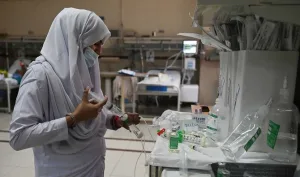Islamabad’s healthcare sector is undergoing a transformation, driven by a surge in private hospitals and clinics that are reshaping the city’s medical landscape. With public facilities struggling to meet rising demand, private institutions are stepping in to fill the gap—offering modern infrastructure, specialized services, and patient-centric care.
As of the latest data, Islamabad hosts 1,488 health facilities, including 1,369 private and 119 public centers. This overwhelming dominance of private providers reflects a growing trend toward privatized healthcare, especially in urban areas where patients seek faster, more reliable treatment.
Flagship institutions like Shifa International Hospital have become models of success, evolving from a modest clinic in 1993 to a publicly listed company with advanced medical services. Their growth story highlights the potential of private healthcare to deliver quality care while maintaining financial sustainability.
The expansion is also fueled by increased demand from Pakistan’s universal health coverage insurance program, which now includes services from both public and private hospitals. This has incentivized private investment and innovation, leading to better-equipped facilities and improved patient outcomes.
However, the boom comes with challenges. Regulatory oversight remains limited, and disparities in access persist between urban and rural populations. Experts emphasize the need for stronger accreditation systems and public-private partnerships to ensure equitable healthcare delivery.
Islamabad’s private healthcare growth is a sign of progress—but also a call for strategic planning to balance quality, affordability, and accessibility in the years ahead.




+ There are no comments
Add yours